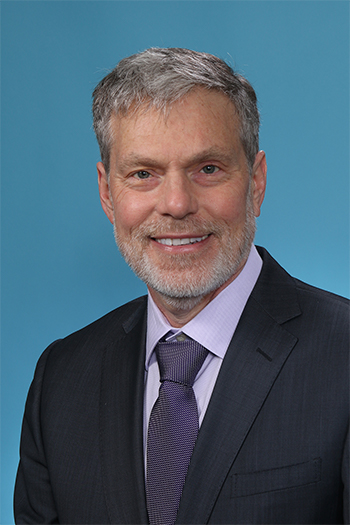
The medical school will welcome Eugene Oltz, PhD, in January as the latest speaker for Seminars in Investigative Medicine.
Dr. Oltz will present “Chromatin-Based Regulation of Gene Expression Programs in the Immune System” from noon to 1:00 p.m. on Wednesday, January 8, in TBL 2 at the W.E. Upjohn M.D. Campus in downtown Kalamazoo.
A free lunch will be available from 11:45 a.m. to noon and Dr. Oltz’s presentation will begin promptly at noon. The event is free and open to the public and CE and MEDU credit is available.
If you’re interested in attending the event, please register at https://bit.ly/2EoFpQx.
Dr. Oltz was born and raised in the Finger Lakes region of Upstate New York. He is an alumnus of Cornell University where he earned a bachelor's degree in chemistry and he earned his PhD in chemistry from Columbia University. Two papers from his PhD work cracked a historically intractable problem, revealing how a highly labile pigment from tunicates allows them to store unstable oxidation states of vanadium in their blood at 0.1M concentrations. For these studies, he received the department’s Hammett Award for graduate work. From 1987-1993, Dr. Oltz was a postdoctoral fellow with Dr. Fred Alt at Harvard University where his research produced 14 publications focused on lymphocyte development and transcriptional mechanisms that govern diversification of antigen receptor (AgR) genes.
In 1994, he was recruited to the Department of Microbiology and Immunology at Vanderbilt University. Initially, his work focused on genetic elements that regulate transcription and recombination of complex AgR loci, but has evolved over the past 20 years, spanning his transition to the Washington University School of Medicine in St. Louis, to investigate cross-talk between genetic-epigenetic pathways and how global gene expression programs are controlled in human cells -- under both healthy and pathogenic conditions.
In 2019, Dr. Oltz moved to The Ohio State University, where he serves as Chair of the Department of Microbial Infection and Immunity and is the Samuel Saslaw Professor of Infectious Diseases.
In addition to his research, Dr. Oltz has maintained a high level of involvement in education and service – both within and outside of academia. He has served as director for two graduate programs (Vanderbilt and WUSM), chaired the publications and program committees for AAI, initiated a new infrastructure for faculty development in his department at WUSM, and continues to be on the Board for a non-profit with programs for at-risk youth, including international refugees. He also will begin as the Editor-in-Chief for The Journal of Immunology in July.
Dr. Oltz is part of an impressive slate of speakers for Seminars in Investigative Medicine for the 2019-2020 academic year.
In support of improving patient care, Western Michigan University Homer Stryker M.D. School of Medicine is jointly accredited by the Accreditation Council for Continuing Medical Education (ACCME), the Accreditation Council for Pharmacy Education (ACPE), and the American Nurses Credentialing Center (ANCC), to provide continuing education for the healthcare team.
Credit amount subject to change.
IPCE Credit
This activity was planned by and for the healthcare team, and learners will receive 1.0 Interprofessional Continuing Education (IPCE) credit for learning and change.
Physicians
Western Michigan University Homer Stryker M.D. School of Medicine designates this live activity for a maximum of 1.0 AMA PRA Category 1 Credit™. Physicians should claim only the credit commensurate with the extent of their participation in the activity.
